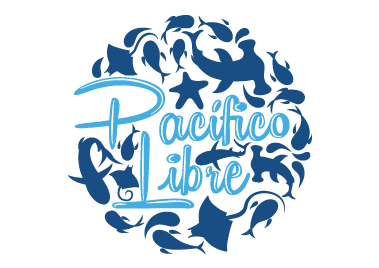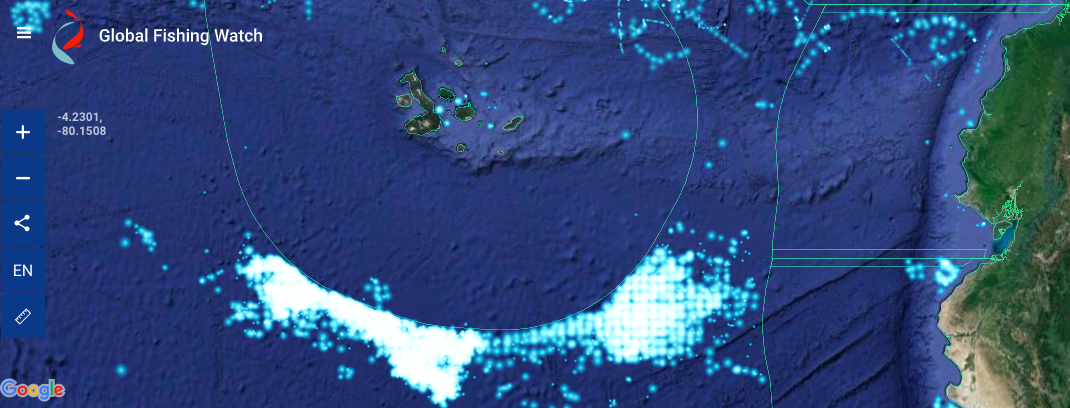On August 5, 2020, the Foreign Ministry of Ecuador announced the medium-term actions that will be implemented regarding the activities of the fishing fleet that is located on the limits of the Exclusive Economic Zone of Ecuador. Among them are a temporary fishing moratorium agreement reached with China; Ecuador’s supervision of Chinese fishing vessels that are at sea; and the willingness to find a solution through diplomatic channels at the bilateral and multilateral level. However, these actions are of a specific nature and for this specific case; they do not seek to definitively solve the problem of this constant threat to our natural resources in the long term.
Due to the commitment that we have as a signatory country of various agreements with international organizations such as FAO and the UN, we are obliged to conserve and sustainably use the oceans, seas and marine resources for sustainable development. It also necessary to apply precautionary and restriction measures for activities that may lead to the extinction of species, the destruction of ecosystems or the permanent alteration of cycles, as is the duty of a country which guarantees the rights of nature that are contemplated in our constitution. For this reason, on the date of August 10th, we ask the different government bodies to make all necessary efforts to facilitate the conditions under which a definitive solution to this problem can be found. Delivered by means of a letter addressed to the President of the Republic, Vice President, Minister of Defense, Minister of Production, Foreign Trade, Investment and Fisheries, Minister of the Environment, and President of the National Assembly. In 22 points, and as supported by legal and scientific bases, these propositions are from four main axes:
- Corresponding to maritime security and surveillance: that laws and controls be promoted with the purpose of improving the government and protection of the aquatic space of Ecuador; That the responsible ministry practice transparency regarding the budget for the control of fishing on the high seas and the EEZ; and that a fund be created, by public trust, for safety and management of ocean activities.
- Regarding irregular fishing: that binding agreements be made to prevent illegal, unreported and unregulated fishing; that the ministry in charge clarifies the particulars of incidental fishing and its detriments to certain species when carried out in the country; that controls on the exports of marine biological resources are strengthened; that the fishing gear used in large ships be monitored and controlled; that a regional agreement is reached to eliminate the fuel subsidy and restrict port facilities to the vessels in question.
- Regarding the conservation of marine ecosystems: dedicate resources to the investigation of our marine resources and make these amounts transparent; the expansion of the continental shelf and the Galapagos Marine Reserve (RMG) and their associated protections; the creation of protected areas for the protection of migratory species in the high seas and marine corridors; that the government accept the participation of national and international conservation NGOs as scientific and technical support in the execution of surveillance and conservation actions of the RMG and the EEZ of Ecuador; that regional initiatives be promoted for an efficient management of natural resources.
- Regarding actions by the legislature: that the National Assembly hold the Foreign Ministry to account for the implementation of the CONVEMAR and other Agreements that have been signed so that they do not go unheeded; that an organizational or legal scheme is proposed, so that oceanic and coastal public policies are incorporated. This scheme would be one in which the Blue Economy and maritime spatial planning are taken into account, since it is necessary to strengthen an oceanic culture to no longer live with your back to the sea as a country whose maritime territory is larger than its land territory.
We ask that China’s proposed fishing moratorium be immediately renegotiated. In the moratorium, they indicate that the fleet will stop fishing from September to November each year. This influence of the Humboldt current reaches Ecuador months before September and November, bringing high productivity and flow of many marine species, including migratory species, with it.
The main target species for fishing in this fleet are giant squid, shark and tuna. The high fishing season for giant squid is from July to October. The high fishing seasonality of tuna differs according to the species: bigeye tuna is from March to June in the first season of the year and July to October in the second season; yellowfin tuna from February to May in the first season and October and November in the second season; skipjack tuna is February, March and April in the first season and October and November in the second season. For shark species, we do not even have this data.
In other words, the months they propose for a moratorium are the same as the months they would already be leaving and uninterested in the area anyway.
We trust that these requests will be heard and addressed by the recipients of the letter, and that they will take action as soon as possible. We, as Colectivo Pacífico Libre, make our scientific and technical support available to the government and its institutions when they need it.
Download the form letter written by Pacífico Libre HERE
If you want to join this cause, download the form letter in the link above, fill it out, and then send by mail or email!
Individual letter format in English
Group letter format in English (multiple signatures)
Individual letter format in Italian
Please note: you must sign in blue ink and provide your full name, passport number and an email address. If more than one person signs the letter, you must provide full name, passport number and an email address for each signatory. To send by email, scan the signed letter and send as an email attachment.
You can then send your signed letter to the authorities by normal mail or by email. 📝📧 To send by email, scan the signed letter and send as an email attachment.
We recommend that you send the letter by normal mail.
Mailing address:
Presidency of the Republic of Ecuador
García Moreno N10-43 between Chile and Espejo
Postal Code: 170401 / Quito – Ecuador
Phone: 593-2 382-7000
Emails:

